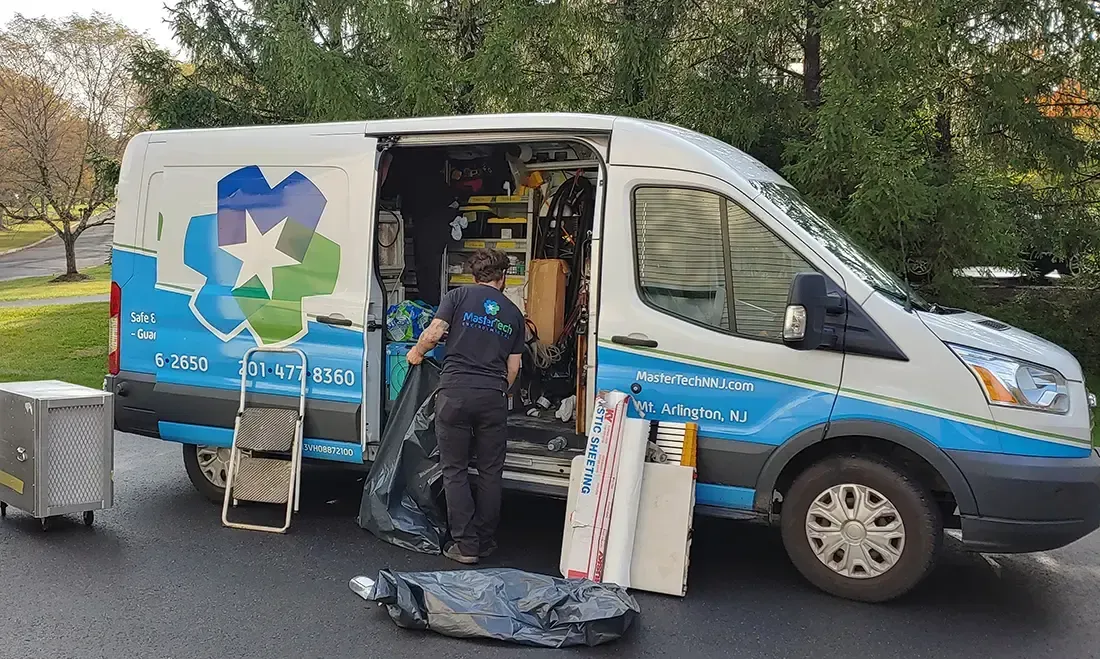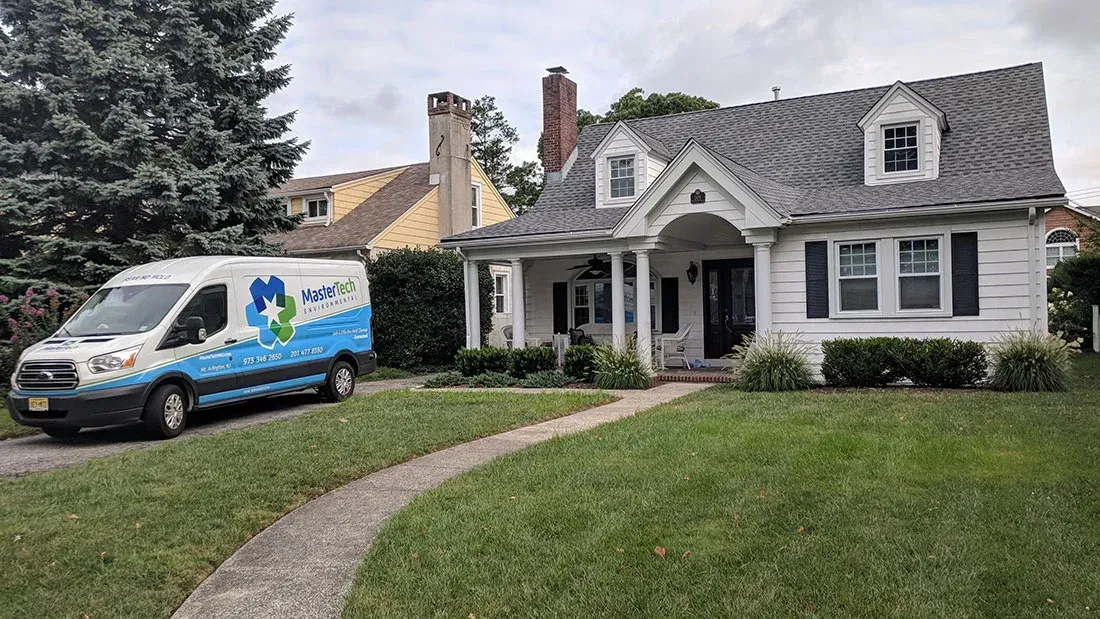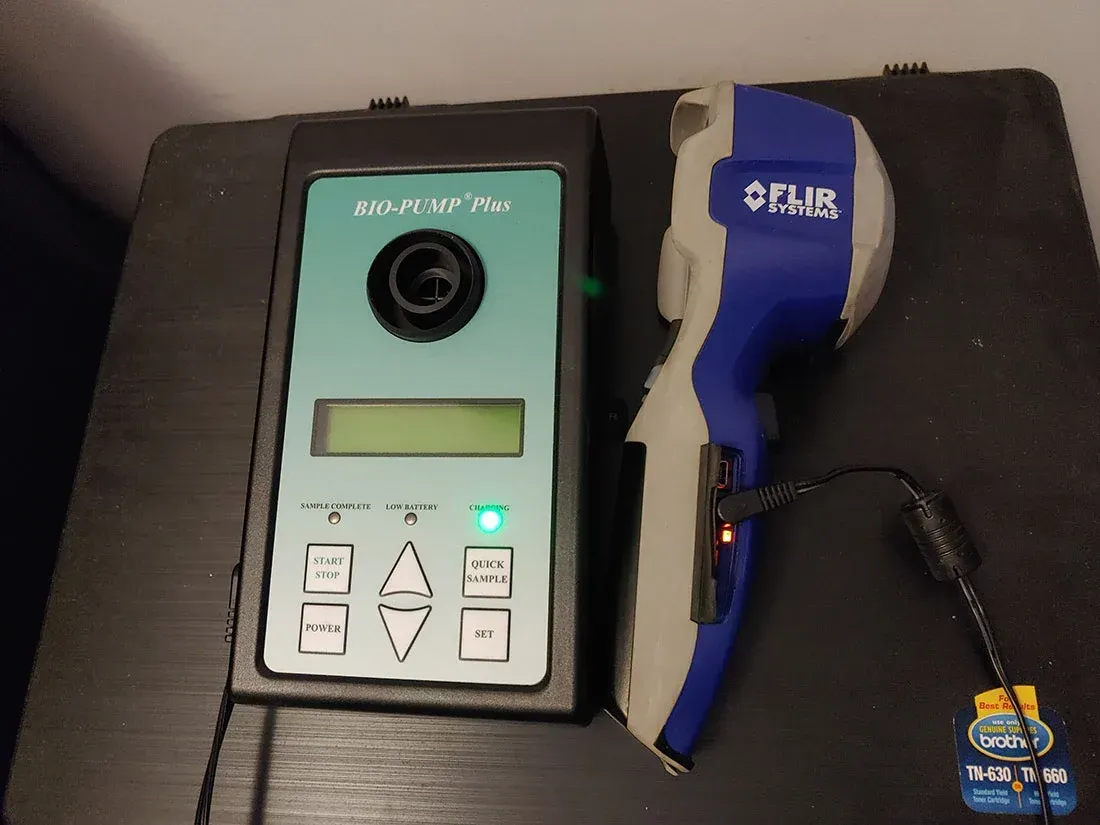Understanding and Managing VOCs and Mold: Why Testing & Remediation is so Important?

Living in and around Montclair, NJ, means most people must deal with mold and VOCs. Volatile Organic Compounds (VOCs) and mold are two significant indoor air quality issues that can pose serious health risks. Both are commonly found in homes and workplaces, often from household products and building materials. While they may seem unrelated, VOCs and mold can coexist and exacerbate indoor air quality problems, making it essential to understand their risks and the importance of proper testing and mitigation.
The Invisible Threats of VOCs and Mold
VOCs are a group of chemicals that quickly evaporate into the air. They are found in many household products, such as furnishings, paints, and cleaning supplies. These chemicals can cause many health issues, from short-term effects like headaches and respiratory irritation to long-term impacts, including liver and kidney damage and even cancer. Indoors, VOC concentrations can be significantly higher due to limited ventilation.
Mold, on the other hand, thrives in damp, humid conditions. It can grow on surfaces like walls, ceilings, and carpets. Mold spores can lead to respiratory problems, allergic reactions, and more. Mold exposure is particularly dangerous for individuals with compromised immune systems. Working with the best mold remediation Montclair, NJ, has to offer is vital if faced with mold.
How VOCs and Mold Interact
When VOCs (chemicals from everyday products like paints and glues) and mold coexist in places like homes, they can interact and exacerbate each other's effects. It's important to note that certain VOCs can act as growth promoters, accelerating mold growth, especially in damp and warm conditions. Conversely, as mold proliferates, it can emit its own VOCs, further contaminating the air. This vicious cycle can significantly deteriorate indoor air quality, potentially threatening people's health, particularly those with allergies or respiratory issues.
Why Testing for VOCs and Mold is Crucial
Identifying and quantifying VOC and mold levels in your environment is the first step toward mitigating their harmful effects. This is typically done through professional testing, which involves collecting and analyzing air or surface samples in a laboratory. Without proper testing, VOCs and mold can go undetected, silently impacting the health of occupants. Testing provides a clear picture of indoor air quality, identifying specific VOCs, mold types, and concentrations.
Relief in Action: Confronting VOCs and Mold Head-On
Once VOCs and mold have been identified through testing, immediate actions can be taken to reduce their levels. This might include:
· Improving Ventilation: Ensuring that indoor spaces are well-ventilated to reduce the concentration of VOCs and prevent mold growth.
· Using Air Purifiers: Installing air purifiers with HEPA filters to capture mold spores and VOCs from the air.
· Addressing Moisture Issues: Fixing leaks and controlling humidity to prevent mold growth.
· Choosing Safer Products: Opt for low or no-VOC products and materials that do not contribute to indoor air pollution. These could include water-based paints, natural cleaning products, and formaldehyde-free furniture.
· Regular Cleaning and Maintenance: Keeping indoor environments clean and dry is crucial for minimizing mold growth and VOC emissions. Regular vacuuming, dusting, and wiping down surfaces reduces the buildup of VOCs while promptly fixing leaks and controlling humidity levels can prevent mold growth.
· Mold Remediation in Montclair, NJ: Testing and removal are essential, but the final and most crucial step is remediating the problem so it does not come back.
Trust the Pros in Montclair for Testing and Remediation of Mold and VOCs
Regular testing and monitoring of VOC and mold levels help maintain a healthy indoor environment. Staying informed about the VOCs and mold in your surroundings and taking proactive measures to reduce them can significantly improve indoor air quality. Understanding the hidden dangers of VOCs and mold and taking action to address them is essential for creating safe and healthy indoor environments.

When the unexpected happens,
you should only trust the best. ®
Services:
Service Areas:
Mastertech Environmental - Mold Inspection Morristown, Mold Remediation Morris County NJ | Bridgewater | Florham Park | Sitemap




